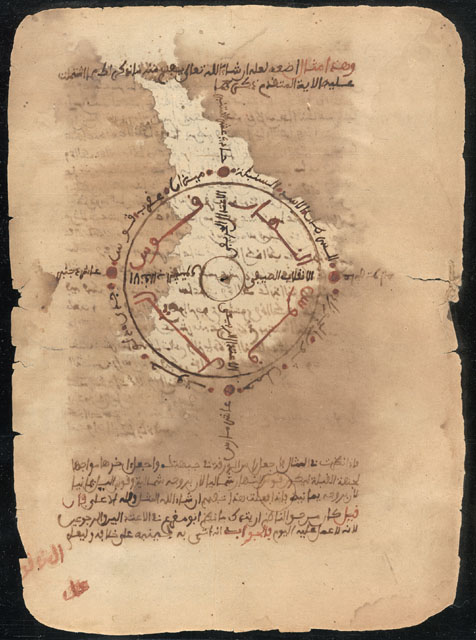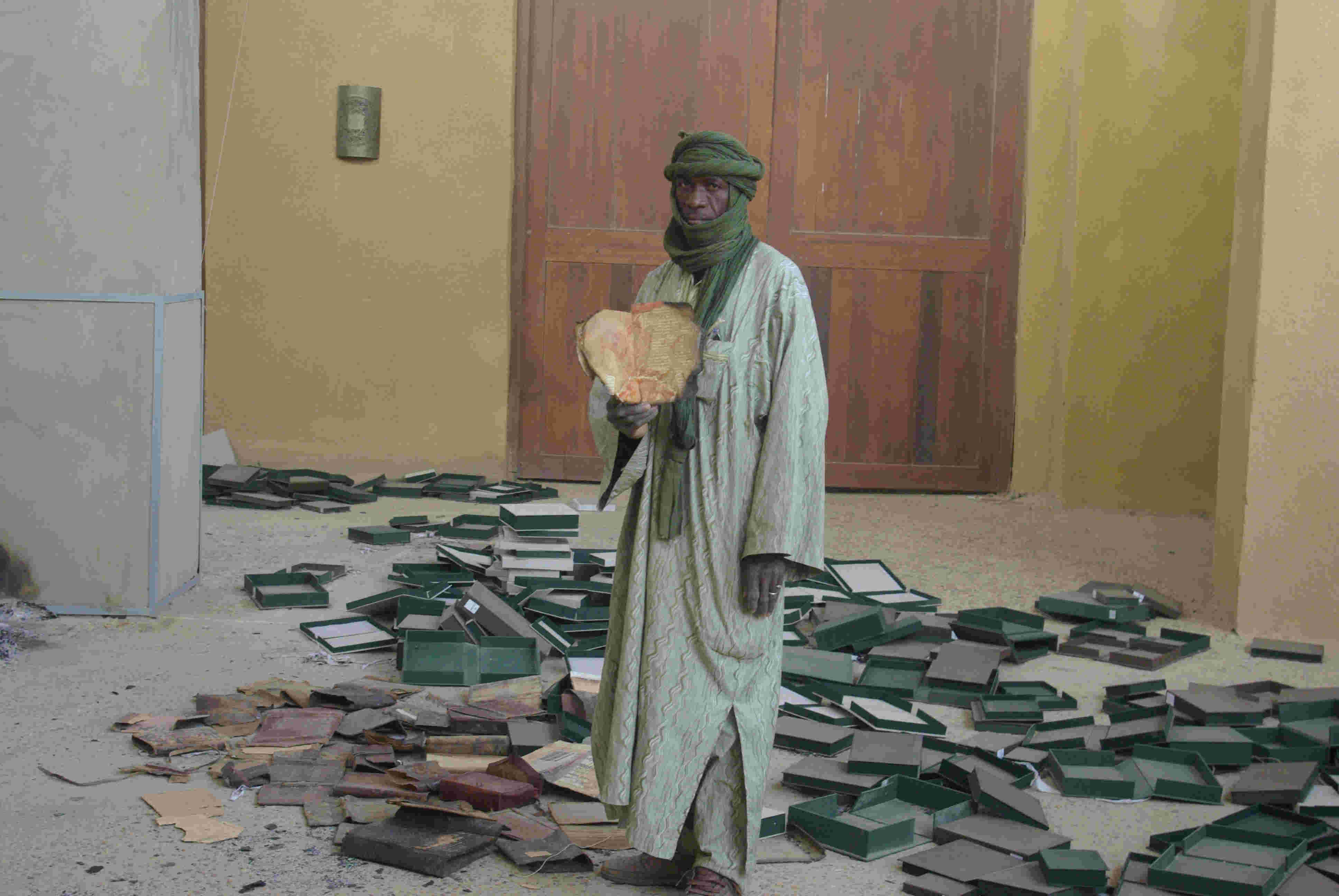The librarian who protected the Timbuktu books from Al-Qaïda
- Published: Friday, 21 February 2020 13:14
- Written by Lionel Tabourier translated by Vanessa Mula
- Hits: 2154
April 2012 in Timbuktu: Al-Quaïda soldiers,in the Maghreb, threaten to destroy the rare manuscripts of the city. A librarian organises a network in order to put them in a safe place.
In April 2012, Abdel Kafer Haïdara, book collector and Malian librarian, comes back to Timbuktu after a business trip. At that time, the Malian army is being defeated by the Islamist soldiers of Al-Quaïda, who have just taken possession of the city.
 Mr. Haïdara fears that the Timbuktu libraries are going to be plundered and the hundred of thousands of rare manuscripts that they contain destroyed. These libraries hold indeed religious, secular, astronomical, poetic and mathematical texts … Their intellectual and reasoned content would inevitably make them become a target of the Jihadists’ destructive intolerance. Several days later, he gathers his colleagues from the Association of Timbuktu Librarians to plan the removal of the manuscripts.
Mr. Haïdara fears that the Timbuktu libraries are going to be plundered and the hundred of thousands of rare manuscripts that they contain destroyed. These libraries hold indeed religious, secular, astronomical, poetic and mathematical texts … Their intellectual and reasoned content would inevitably make them become a target of the Jihadists’ destructive intolerance. Several days later, he gathers his colleagues from the Association of Timbuktu Librarians to plan the removal of the manuscripts.
Several months ago, the Ford Fondation had granted Mr. Haïdara 12.000 dollars to enable him to study English in Oxford. The collector requests that these funds be reallocated to the protection of the manuscripts. With his nephew’s help, he organises then a small army, made of archivists, secretaries, tour guides from the city or from his family. Together, they buy coffers at the rate of 50 to 80 a day, collect gas barrels to make new ones, and finally find safe houses inside and outside Timbuktu. At night, they silently pack the works in order to convey them on donkey’s back to a safe place. During the eight months of the operation, hundreds of packers, drivers and messengers got involved. And as, in January 2013, the French troops take back the North of the country the Islamists could not destroy more than 4000 out of the 400.000 ancient manuscripts of the city. If they had not taken action, Abdel Kader Haïdara is convinced that a big part of the books would have burnt. He is particularly proud to have saved a manuscript which relates the resolution of the conflict between the Borno and the Sokoto kingdoms, in the current Nigeria, the work of a sufi intellectual and warrior who briefly ruled Timbuktu in the middle of the 19th century. Mr Haïdara reckons that he is a Jihadist in the original sense of the word: a man who fights against its desires and his anger to submit them to his reason and to God’s will.
If they had not taken action, Abdel Kader Haïdara is convinced that a big part of the books would have burnt. He is particularly proud to have saved a manuscript which relates the resolution of the conflict between the Borno and the Sokoto kingdoms, in the current Nigeria, the work of a sufi intellectual and warrior who briefly ruled Timbuktu in the middle of the 19th century. Mr Haïdara reckons that he is a Jihadist in the original sense of the word: a man who fights against its desires and his anger to submit them to his reason and to God’s will.
source: Joshua Hammer, "The Librarian Who Saved Timbuktu’s Cultural Treasures From al Qaeda", Wall Street Journal, April 15, 2016 (read in February 2018)






